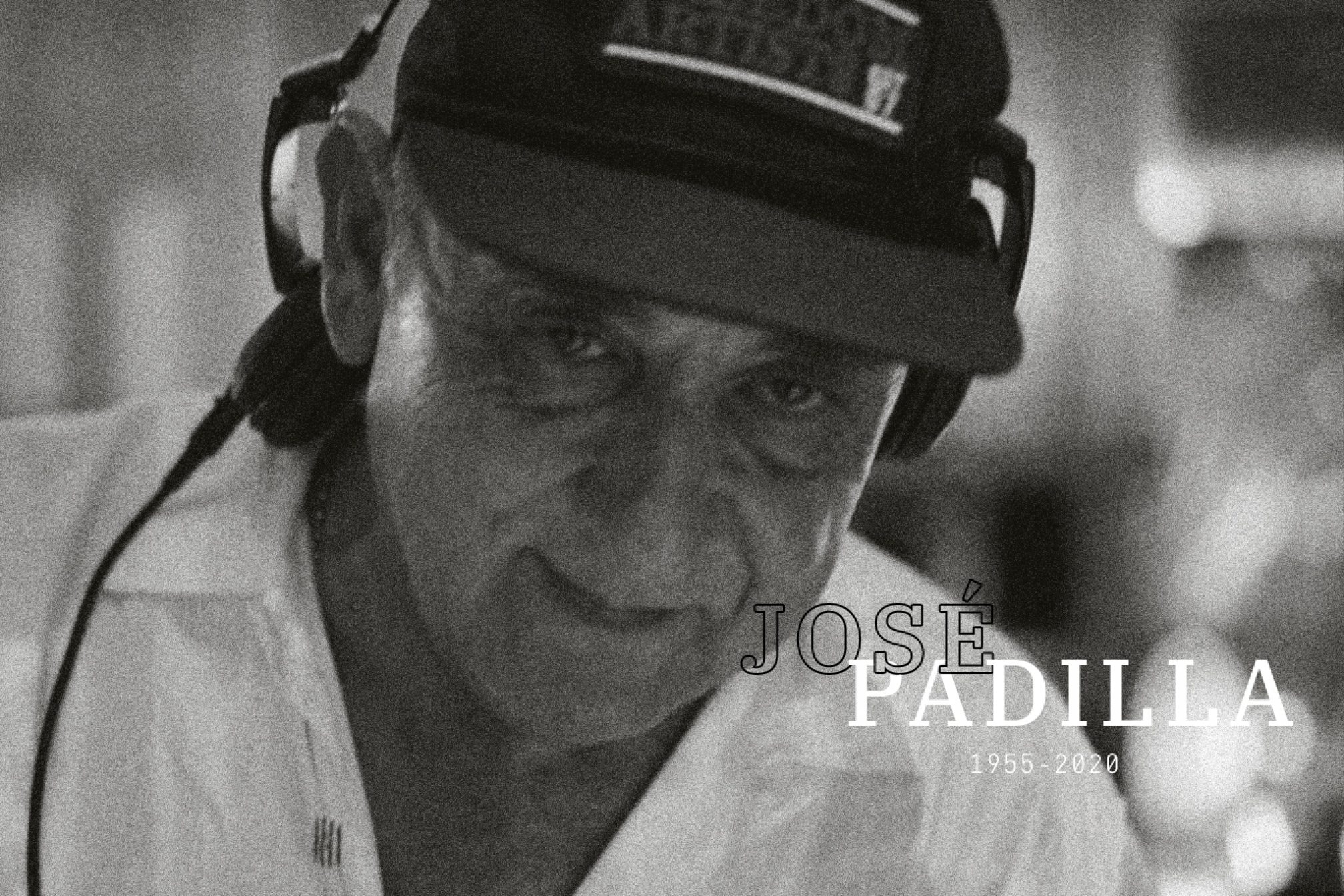 Features
Features
José Padilla embodied the original spirit of Ibiza
Bill Brewster celebrates an original Balearic pioneer
José Padilla, who has died from cancer of the colon, was more than just Ibiza’s chillout DJ par excellence. Along with a small coterie of survivors, he was the heartbeat and conscience of an island that has become increasingly remote from its idealistic origins as a hippie enclave.
Born in Girona, Catalunya in 1955, he grew up in a musical household with a brother obsessed with rock ’n’ roll. His first experience as a DJ was in Lloret Del Mar as a 16-year-old, when he played for free to let the main DJ have a break. He came out to Ibiza in 1976 after getting into what he described cryptically as, “deep trouble”. In those days it was impossible to earn a full-time living as a DJ, so he supplemented his meagre income working in construction or as a waiter.
While his reputation was built as a chillout DJ, he was originally a dancefloor-oriented spinner. His first major residency was at San Antonio’s then credible Es Paradis in 1978, before mass British tourism had hit the island. “It was open air,” he said. “It was cosmopolitan, but there was also that freaky hippie thing, you know. It was a different vibe. Different people, different drugs. It was more relaxed.”
He opened a place called Museo in Cala Vadella on the west of the island which ended in tragedy when one of the partners killed himself in the bar. He retreated to the hippie market and began hawking cassette tapes showcasing his own mixes. “First day I went, I sell all of them. Next day I did double. I sold them all again. Fuck! I buy another tape machine. Then I speak to Alfredo, Pippi, Cesar de Molero. I say, ‘Look I got this business in the market, if you make me a master, I’ll give you a percentage’.” It was via this circuitous route he began playing at Cafe Del Mar, then a San An outpost, whose musical sunsets swiftly became part of Ibizan legend.
In 1994, Padilla – in tandem with React in the UK – began releasing a series of iconic compilations the first of which included the foundational Ibicencan anthem‘Music For A Found Harmonium’ by Penguin Cafe Orchestra, a wheezing, string-heavy song that is as distant from modern Ibiza as it’s possible to be. “The first time I heard Penguin Café Orchestra was in Glories in the ’80s and it was this guy from Valencia called Paco who played it. It was the beginning of ecstasy, only a few people were taking it, it was the first time I saw people doing that dancing [mimics acid house type dancing].” The first Cafe De Mar compilation sold a respectable 8,000 units. By the fifth, the halcyon years of the short-lived heyday of the CD, they sold 500,000. The Best of Cafe Del Mar topped 1m. sales.
The Ibizan DJ style, partially submerged by the current house/techno hegemony, was born out of necessity and ingenuity more than desire. There were no guests, no superstars, just one DJ in a nightclub playing the whole evening and night. “Well, of course we were brought up like that, but also there was not much choice,” suggested Padilla. “Now you can specialise in Detroit techno or deep house or whatever, but then you had to play with what you have. It wasn’t because in Ibiza we like to play like that. We have to play Talk Talk, we have to play Belgian new beat, we have to play rock and we have to play reggae, because we had to play for so many hours.”
When I interviewed José 15 years ago, he seemed particularly disillusioned with what Ibiza had become. He talked of leaving the island to live somewhere else. “Ibiza, to me, doesn’t mean anything any more,” he said. “It’s for young kids. It’s a very unreal place. Go go go, party party. There’s not many places you can hang out. Maybe it’s because I’m older or because I’ve changed. Everything is so business oriented now, there is no spirit or goodwill. It’s a big industry. It’s a big factory. That’s the fucking reality.” In the end, José never left the island and, perhaps, the island never left him. Despite his disagreements with the direction it had taken, he still loved it too much to file for divorce.
“He saw the birth of club culture in Ibiza pretty much from the beginning and knew the more mellow side of music was just as important as everything else,” says Phil Mison, who played alongside José at Cafe Del Mar. “So to concentrate on doing the chillout tapes, which turned into the CD releases, which eventually turned into the worldwide phenomenon of curated Spotify playlists… that whole concept started with José. That’s quite a legacy.”
Chris Coco, another British DJ inspired by Padilla’s approach and taste, says, “Countless lives were changed on the sunset strip, staring out to sea, listening to music selected by José. His sunset soundtracks were, for me at least, all about love - love for music, love for nature, loving and living in the moment. That was his power - connecting art and the natural world, music and the moment, to make something so fragile, so intangible, and yet so strong, it was soon gone, but never forgotten.” The lights may never go out in Ibiza, but tonight they will certainly be glowing a little less brightly.
Bill Brewster is a regular contributor to Mixmag. Follow him on Twitter
Read this next: Get the best of Mixmag direct to your Facebook DMs


